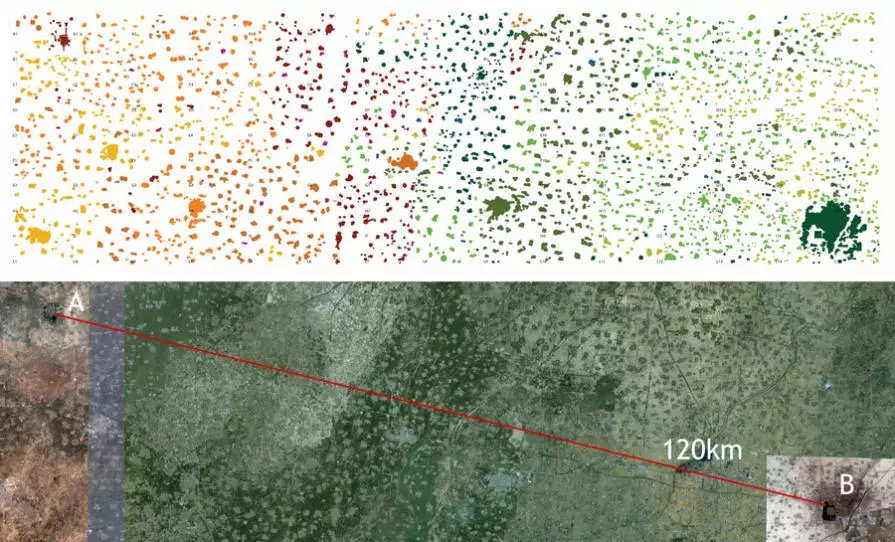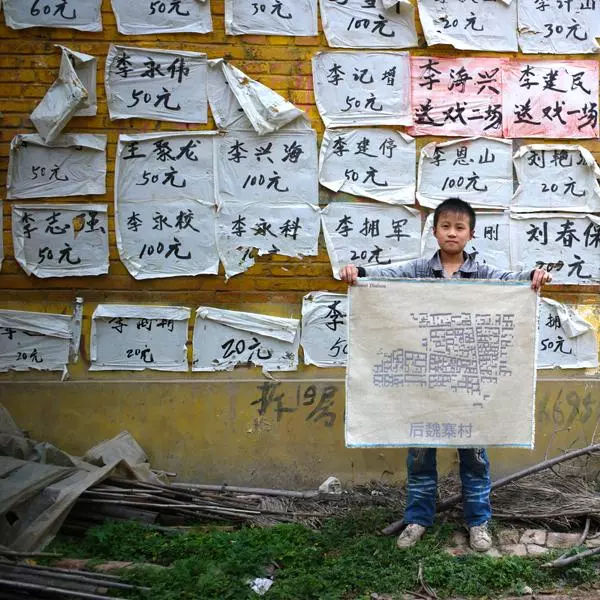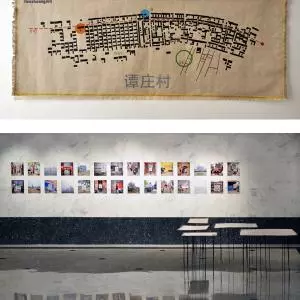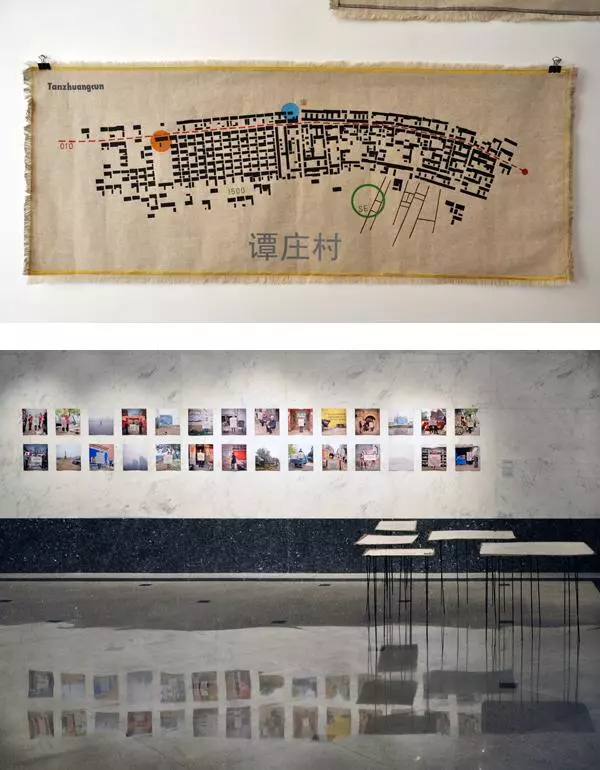120 Km [ the urbanization of chinese countryside ]
120KM project focuses on the contemporary Chinese countryside and the development set in motion since the last Five-Year Plan (2006-2011) which placed several key issues aiming to help and elevate the conditions of farmers and rural population but radically changing at the same time secular traditions. The project consists in a journey crossing a 120 Km wide rural region in-between the ancient cities of GuanFuZhen (Hebei province) and LiaoCheng (Shangdong province), the territorial structure of which is a texture made of a fine dust fragmentation of rural villages and modern infrastructures. Along the path, the project will open to the participation of the local communities. We will contact the people of the villages documenting contemporary changes in their landscape and their habits, creating with them moments of aggregations and temporary installations.
For the first time ever in human history over 50% of human population lives in cities or urban settlements. In traditionally rural China the emergency of this phenomena assumes the form of a high pace revolution, with an invasion of urban products to the countryside. Furthermore, one of the strategies stated in the Plan is to apply to the countryside the same ?successful? models of development adopted for the main Chinese cities in the past 30 years, by merging groups of 3-4 traditional villages into medium size urban centres, thus reducing the difference between urban and rural landscape and turning the territory into a large uninterrupted cityscape. The related risk is to turn upside down a whole rural culture overlapping new consumerist urban models on it.
In the format of an open and un-planned journey carried out at different stages, 120KM composes an activity of social mediation, involving people?s perception of changes, participatory consultation and awareness of their role in the evolution of their habitat. An important part of the project is called CUN, which means Villages in Chinese. CUN is mapping over 60 villages along the path, transferring the maps onto fabric and using them as a tool not only registering and describing what we observe, but also involving the villagers in creating situations or ?moments? rich of meaning, in which to intensify the vital productivity of everydayness. The starting urban analysis provides the framework for a deeper and street related urban approach involving inhabitants and their lifestyle, in which experience, time, paths, observations, encounters and ideas become eventually as important as the built environment. Each CUN is the catalyst for spontaneous gatherings in which commonly retrieve collective memories, share tales and experiences. The results of the passing by each village will then retransferred on the map itself, which will become a practical psycho-geographic document of ?walking the land?, by using symbols and colours, and establishing ? all together maps, documents, photographs ? a sort of visual territorial notebook for contemporary rural China. Beside CUN, 120KM project is made ??of moments for exchange with local farmers, taking a cue from little and seemingly insignificant items related to everyday life and re-contextualizing them. The public intervention we called PAGLIONI was about creating one of these situations. Each year in autumn, in the months of October and November, the residents of nearby villages are gathering to produce straw mats with scraps of the harvest, which are used to protect the hothouses during the winter. We slipped in the middle of this traditional productive process, adding colors and creating special pieces. The result was a set of colorful straw mats produced together with local farmers in Hebei province, who later used them for protecting the their plastic hothouses from freezing at night, taking away at the same time a bit of grey from the environment around.
 Share / Save
Share / Save![120 Km [ the urbanization of chinese countryside ] 120 Km [ the urbanization of chinese countryside ]](https://www.premioceleste.it/indi/_pics/2/8/2012-45085-135796_12808_4565_t.webp?m=1339075972)
































Comments 1
Say something